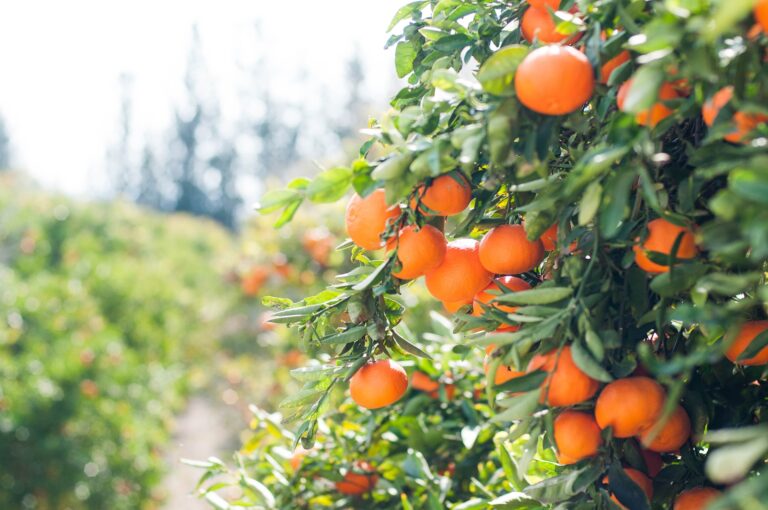Fruit Farming: Cultivating Nature's Sweet Bounty
Fruit Farming: Cultivating Nature’s Sweet Bounty

Fruit farming is a delightful blend of science, art, and nature’s bounty. From orchards to vineyards, this practice plays a vital role in providing a diverse array of delicious and nutritious fruits to people around the world. In this article, we’ll explore the intricacies of fruit farming, its significance, and essential practices for successful cultivation.
1. The Diversity of Fruit Farming
Fruit farming encompasses a wide range of fruits, each with its unique growth requirements, harvesting techniques, and cultural significance. From the luscious sweetness of apples and pears to the vibrant colors of berries and the elegance of citrus fruits, fruit farming is a celebration of nature’s flavors and colors.
2. Choosing the Right Location
The success of a fruit farm starts with selecting the right location. Climate, soil type, and altitude are crucial factors that influence which fruits can thrive in a particular area. Understanding the local microclimate, frost-free days, and chilling hour requirements is essential for making informed planting decisions.
3. Soil Preparation and Management
Healthy soil is the foundation of a thriving fruit farm. Conduct soil tests to determine nutrient levels and pH, and amend the soil as needed. Organic matter, such as compost and cover crops, should be integrated to improve soil structure, water retention, and nutrient availability.
4. Variety Selection
Choosing the right fruit varieties is pivotal to successful fruit farming. Consider factors such as disease resistance, yield potential, flavor, and market demand. Research and consult with local agricultural extension services to identify varieties that are well-suited to your region’s conditions.
5. Planting and Propagation
Proper planting techniques ensure strong, healthy plants. Pay attention to spacing, depth, and planting orientation. Depending on the fruit type, propagation methods may include planting seeds, grafting, budding, or using vegetative cuttings. Early care, including proper irrigation and protection from pests, is essential for young plants.
6. Pruning and Training
Pruning and training fruit trees and plants are essential practices that promote healthy growth, fruit production, and ease of harvest. Pruning encourages the development of strong branches, increases sunlight penetration, and improves air circulation, reducing the risk of diseases.
7. Pest and Disease Management
Fruit farming is not without its challenges, including pests and diseases that can damage crops. Implement integrated pest management (IPM) practices to minimize the use of synthetic chemicals. Monitor crops regularly, encourage natural predators, and employ cultural practices like proper spacing and hygiene to prevent infestations.
8. Irrigation
Appropriate irrigation is crucial for fruit farming, as water stress can lead to poor fruit quality and yield reduction. Different fruits have varying water requirements, so tailor irrigation practices to the specific needs of your crops. Drip irrigation and mulching can help conserve water and reduce weed growth.
9. Harvesting and Post-Harvest Care
Timing is critical when harvesting fruits. Harvesting too early or too late can affect flavor and quality. Fruits should be carefully handled to avoid bruising and damage. After harvest, proper storage conditions, such as temperature and humidity control, help extend the shelf life of the produce.
10. Environmental Considerations
Sustainable fruit farming practices prioritize environmental stewardship. Implement practices such as agroforestry, cover cropping, and composting to improve soil health and reduce the use of synthetic inputs. Supporting biodiversity through habitat preservation and beneficial plantings can also enhance natural pest control.
Conclusion
Fruit farming is a captivating journey that intertwines nature’s wonders with human ingenuity. It provides us with not only a delectable array of flavors but also a deep connection to the land and its cycles. By applying proper cultivation techniques, practicing environmental responsibility, and fostering a love for the art of fruit farming, we can ensure the continuation of this rich tradition for generations to come.

At Olive Agro company limited our journey is defined by a deep-rooted passion for agriculture. We invite you to embark on this journey with us, as we continue to provide you with products that resonate with quality, sustainability, and the essence of the land.
Contact Us
- +49 1521 4159508
- +234 902 991 0922
- [email protected]
- Ralph Crescent, megamound Estate Lagos Nigeria
- Blumenrather str Alsdorf Germany